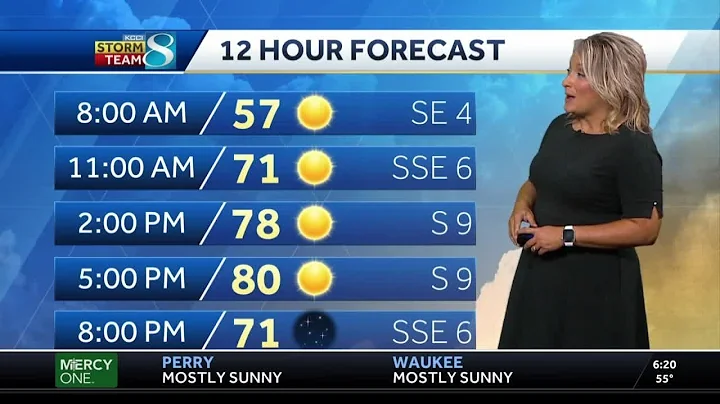Painful Chairman
In the early morning of October 8, 1935, the sky had just broken, and thin clouds were wandering on the horizon. A few long calls of wild geese woke up the loess slopes of northern Shaanxi that were sleeping under their wings.
Chairman Mao got up very early, stood on the top of the mountain, looked to the west in the direction of Wuqi Town, and showed a faint smile.
" The Long March will be victorious." Chairman Mao muttered to himself as he lit his cigarette.

At this moment The Central Red Army took a year to set out from Ruijin, Jiangxi, to break through the Kuomintang's blockade and break through the last barrier Liupanshan . In less than two weeks, we will be able to meet with the Northern Shaanxi Red Army . All difficulties will be overcome, the revolutionary fire will be retained, and the road ahead will be bright.
What he didn’t expect was that a brief report broke Chairman Mao’s mood at the moment.
The young correspondent found the chairman on the hillside in a panic, gasping for air and unable to speak. Chairman Mao took the letter in his hand, and there was only a short sentence on the wrinkled paper: "More than three hundred red army soldiers stationed outside Gengwan Town all died overnight!" Chairman Mao read it again and again, and still couldn't believe it. If you don’t believe it, read on word by word. After a brief silence, Chairman Mao's face was full of grief and disbelief, and he said: "Ask Luo Ruiqing, the director of the Security Bureau, to come here quickly. Check, we must find out!"
After all the hard work, three hundred Red Army soldiers saw the dawn of victory. Soldiers are all the seeds of revolution, and all of them are treasures. How can we not feel sad? So why did the soldiers stationed in Gengwan Town die? We have to start from the beginning.

Luo Ruiqing
The last leg of the Long March
On the night of October 10, 1934, due to the failure of the fifth counter-encirclement and suppression campaign, the Red Army faced life and death. In order to preserve the fire of the revolution, the Central Committee of the Communist Party of China led a total of 86,000 Red Army troops to evacuate the Soviet area and began a two-year campaign. The Long March of 15,000 miles.
Under the outstanding leadership of Chairman Mao, the Central Red Army crossed Chishui four times, skillfully crossed the Jinsha River , forcibly crossed the Dadu River , flew to seize the Luding Bridge , climbed over the snowy mountains and crossed the grassland , with perseverance. Perseverance and outstanding conduct created miracles one after another, successfully jumping out of the enemy's encirclement. Although the number of people was reduced a lot, the red fire still continued.
Finally, on September 15, 1935, the Central Red Army lasted 10 months and fought for more than 10,000 miles. It successfully arrived in northern Shaanxi and met with the Shaanxi-Gansu Red Army. Three days later, it captured Lazikou and learned about it in hadapu After the situation of the Red Army in northern Shaanxi, the chairman decided to set out for northern Shaanxi and forcibly break through the Kuomintang blockade.

hadapu
It was also in Hadapu that the main force of the First Red Army was officially reorganized into the Shaanxi-Gansu Detachment of the Chinese Workers' and Peasants' Red Army. Peng Dehuai served as commander, Chairman Mao served as political commissar, deputy commander Lin Biao, and chief of general staff Ye Jianying. It has three columns, a total army of 8,000 people, and a combat force of about 6,000 people.
Hadapu is about 800 miles away from northern Shaanxi. To successfully cross, the Central Red Army must cross the Weishui River, cross the Xilan (Lanzhou, Xi'an) Highway, climb over the Liupan Mountains, and then cross a plateau. The Kuomintang has already set up two lines of defense, located on the Weishui River and the West Lan Highway .
On the Wei River defense line, the newly formed 14th Division is stationed near Lintan, the 12th Division of the 3rd Army is located in Minxian County, , the 114th Division and the 113th Division of the 51st Army are entrenched in Wushan and Tianshui respectively, and there are 22 8th Divisions of the 37th Army. The main force of the brigade and the 7th Division of the 3rd Army were on strict guard against Longxi .

The West Lan Highway defense line is even tighter. The Lanzhou garrison and Mao Bingwen ’s 37th Army Division are on tight defense. Even if they break through the West Lan defense line, there are Northeastern Army cavalry and the 35th Division stationed in Liupan Mountain waiting for the current Shaanxi-Gansu Detachment. is the Central Red Army.
The two lines of defense are like an iron wall with the troops stationed in Liupanshan. This is not over yet. Hu Zongnan's first unit and the 118th Division of the 51st Army have already surrounded the Shaanxi-Gansu Detachment from the rear. The total strength of the Kuomintang is more than hundreds of thousands, but we only have battle teams. Troops six thousand.
is really a dragnet, vowing to besiege the Central Red Army. However, Chairman Mao's analysis of this situation revealed its weaknesses.

First of all, Chairman Mao pointed out that the complex factions of the Kuomintang led to too many communication holes among these troops. The radio wavelengths between the various troops were different, there was no unified code book, and they could not communicate with each other. It seems to be surrounded by a net, but it is actually a pile of loose sand.
The second point is that the Kuomintang army that was familiar with the terrain was disrupted by the Red Army . The remaining troops were all newly transferred to the northwest to participate in the encirclement and suppression. This resulted in unfamiliarity with the place and no ability to pursue the Red Army.
The third point is that the troops stationed in the local area have been harassed by the Red 25th Army from the side or defeated frontally. They have psychological shadows and want to protect themselves. Most of them paddle.
To sum up, the troops who want to fight are not familiar with the thousands of miles of loess high slopes, and the troops who are familiar with the local landforms want to preserve their strength, and the communication between the troops is very poor.

"The Red Army is not afraid of difficult expeditions, and they can only wait for thousands of rivers and mountains."
After the situation analysis was completed, the top management made plans together, and quickly formulated a breakout plan.
First, the Central Red Army sent out feint troops to do work near Tianshui. Hearing that the main force of the Red Army was going to attack Tianshui, the 114th Division of the 51st Army stationed in Wushan immediately gathered in Tianshui, and a gap was torn open in the entire Wei River defense line.
Of course, our army was attacking in the east and west, heading towards Yuanyang Town at the foot of Wushan Mountain. Before that, Chairman Mao had ordered the troops to recharge their batteries, so this advance did not take a break, and the speed was extremely fast. The 114th Division of the 51st Army did not know that our troops had appeared in Yuanyang Town until they arrived in Tianshui, and they immediately returned to defense. But how could our army give him a chance? It was the dry season in autumn and winter, and the Wei River in Yuanyang Town could be crossed on foot. After crossing the Wei River, there was a hilly area. The 114th Division of the 51st Army, which was not familiar with the terrain, did not dare to go behind. Chase, fearing an ambush.

In this way, our army easily broke through the Kuomintang's Weishui defense line and rushed to tongwei county. Here, our army held a combat meeting and established a combat plan to "avoid fighting with the national army as much as possible in order to quickly reach northern Shaanxi." After that, we rested for a few days to eliminate the fatigue of the rapid march, and at the same time made reconnaissance preparations for crossing the Sealand Highway defense line.
Here, Commander Peng Dehuai asked the Chairman what he needed to do during his few days of rest. The Chairman only said a simple and simple request: "Everyone eat well." It is true that since the Long March last year, our troops have not eaten seriously. Most of the time, they have relied on wild vegetables, wild fruits, and grass roots to satisfy their hunger.
So in Tongwei County, the Central Red Army held an unprecedented grand banquet. Chairman Mao bought all kinds of local ingredients, including chicken, duck, fish and meat. Moreover, the way the soldiers gathered for dinner was that the dishes were put in big basins and placed on the table. The soldiers walked around and picked dishes at will, much like our buffet today.

When they were full of wine and food, Chairman Mao looked at the soldiers eating happily and recited to everyone a poem he had just composed, which is the famous "Seven Rhythms·Long March".
The Red Army is not afraid of the difficulties of the expedition, and can only take it easy.
The five ridges are meandering and the waves are flowing, and the Wumeng is majestic and muddy.
The golden sands and water beat against the clouds and the cliffs are warm, while the horizontal iron cables of Dadu Bridge are cold.
I am even more happy with the thousands of miles of snow in Minshan Mountain, and the three armies are all happy after the passing.
"On the peak of Liupan Mountain, the red flag rolls in the west wind." It was learned that when our army was resting in Tongwei, the Kuomintang deployed a combat plan to reduce the defense area and build a line of defense in Tongwei County. However, the Kuomintang's intelligence exchange was too slow. Before the construction was completed, our army had already crossed Surrounded them and crossed the Sealand Highway defense line. At this point, the two lines of defense envisioned by Chiang Kai-shek are in vain.

On October 4, our army arrived in Xinglong Town. Due to the mass foundation laid by the Red 25th Army, the Central Red Army received a warm welcome here.Next, as long as we cross the last mountain range on the Long March, Liupan Mountain, there will be no terrain obstacles and the road will be smooth.
Chiang Kai-shek also understood that once the Red Army crossed Liupan Mountain, his decades of hard work would be in vain, so he ordered all efforts to strengthen the defense of Liupan Mountain.
The current situation is that the 22nd Brigade of the 8th Division of the 37th Army is following the Central Red Army in the rear, and the first section of the 37th Army arrives at Liupan Valley from the Xilan Highway. At the foot of Liupan Mountain, small groups of troops were stationed in Wating, Niuyingzi and Qingshizui. There are pursuers behind and barriers in front. The situation looks very pessimistic.

However, according to the information from the scouts ahead, the troops stationed at Qingshizui are very weak, with only two companies. Passing through Qingshizui is the closest route to Liupan Valley. It turns out that the 35th Division Cavalry Regiment and 5 camps in the north are unwilling to come down to help garrison and want to preserve their troops. From the arrangement of the 7th Cavalry Division, it was obvious that they did not know the direction of the Red Army's march. We also learned afterward that the 22nd Brigade behind the Red Army could not contact the 7th Division.
The enemy's weakness is our opportunity. After gaining insight into the battlefield situation, the Red Army immediately took action and went down to the valley to launch an attack on the two companies in Qingshizui.
The four brigades attacked the front, while the 5th brigades and the 1st brigades detoured from the north and south respectively and attacked from the flanks. It was already a siege, but the enemy troops were still resting at this time. Not only did they not have any guards, they also sent their war horses out to graze. In this way, our army wiped out two companies of the 19th Regiment with lightning speed. The surrounding enemies heard the gunshots. The nearby 20th Regiment was only five kilometers away from Qingshizui, but it was too late for reinforcements. As a result, our army won the Qingshizui annihilation battle and captured more than a hundred war horses and a large amount of supplies.
In this way, our army successfully crossed Liupan Mountain from Qingshizui. The final difficulty of the Long March has been solved. Looking at the continuous Liupan Mountains, wrapped in the joy of the recent victory, Chairman Mao became very popular in poetry, and blurted out the song "Qing Ping Le·Liu Pan Mountain".

Climb over Liupan Mountain
The sky is high and the clouds are light,
I can see the geese flying south.
is less than Great Wall is not a hero,
only has a journey of 20,000.
On the peak of Liupan Mountain,
the red flag rolls in the west wind.
Today the tassel is in hand, when will
bind the blue dragon?
The words and sentences are simple and unpretentious, but the emotions burst out and the high-spirited will is layered, reflecting Chairman Mao's desire to go into battle and capture the dragon.

In order to ensure the physical strength of the troops, the Central Red Army decided to rest at the foot of the mountain for a night after crossing Liupan Mountain to recuperate before marching towards northern Shaanxi. However, an accident happened on this night...
Gengwan Town Suspicious Cloud
After a day of During high-intensity operations, most Red Army soldiers lost a lot of body water, were unbearably thirsty, and were very tired. They urgently needed corresponding supplements. However, before setting off, the Red Army soldiers took the initiative to throw away some supplies in order to reduce their burden and move forward lightly. After arriving at the bottom of the mountain, we can only look for water sources nearby.
Among them, a troop of more than 300 people came to Gengwan Town. Since they could not disturb the people, they were stationed outside the village. After the campsite is arranged, it is natural to find a water source to replenish moisture. After a while, several soldiers found the spring and the ravine. So, everyone began to drink water in large gulps, pouring it into their mouths desperately, and drank to their heart's content. Then, they used the sky as their quilt and the ground as their mat, and slept neatly in rows.

After a night's rest, most of the Red Army soldiers regained their energy and were ready to go. However, just as the troops were preparing to set off and began to count their numbers, they found that there were more than 300 soldiers missing, and they were a troop stationed near Gengwan Town. You must know that the Red Army troops are strictly disciplined and have never been late for assembly. The commanders and soldiers quickly asked the correspondent to call them.
This correspondent came here and took a look and found that the soldiers were lying on the ground naturally with guns in their arms. Last night, the superiors had notified every soldier of the time and place of the assembly. After the time, they still When he couldn't get up, the correspondent felt something was strange and hurried over to him. He was seen vigorously shaking a soldier lying on the ground, and shouted even louder: "Wake up!"
But every soldier present did not There was movement, and the correspondent put his hand under the soldiers' noses and found that they had lost their breath. The correspondent hurried back to report to the chief. The chief was not as shocked as the correspondent. While ordering people to protect the scene, he also asked people to write a report and give it to Chairman Mao.

html There are more than 3,300 people! Just yesterday, Chairman Mao said humorously to the soldiers: "Chiang Kai-shek has made another trip in vain. You Red Army soldiers who have survived from Jiangxi to now are all treasures! You are the seeds of revolution. Soon In the future, it will be spread all over the country, and it will bloom and bear fruit in large areas! We must not let Chiang Kai-shek let it go in vain."
The heartbroken Chairman Mao and Director of the Security Bureau Luo Ruiqing came to the scene to investigate and found that there was no fighting at all. Traces, the soldiers also left in their sleep, it is very likely that they were poisoned. The soldiers all came from Jiangxi on the Long March and were comrades who shared life and death. However, there is no condition to detect poisons. After checking the surrounding people, there is no useful information. clue.
At this time, news came from the garrison that the Kuomintang troops were pursuing them. In order to ensure the safety of the First Red Army soldiers, Chairman Mao reluctantly ordered the burial of these three hundred great Red Army soldiers, and then quickly evacuated the scene and continued to move east. But this incident has always been remembered in Chairman Mao's heart.

On September 19, 1935, the Central Red Army successfully arrived at Wuqi Town and joined forces in northern Shaanxi. The Long March was an arduous victory. Before the excitement came, news came that the enemy's cavalry regiment followed closely and arrived in the valley outside Wuqi Town.
Seeing that Chairman Mao was furious at this time, he attributed the sacrifices of 300 Red Army soldiers to the enemy at this moment, and ordered Peng Dehuai to completely annihilate the enemy. He could not let the 300 soldiers die in vain, and the enemy must pay back double the amount!
After Peng Shuai received the order, he was so angry that he gritted his teeth and must not bring the enemy into the base area.
Wuqi Town is surrounded by canyons, less than 300 meters wide, and the enemies are all cavalry. Soon Peng Shuai formulated a three-line encirclement plan.

Wuqi Town
First, a small force was sent to lure the opposing cavalry. If the enemy attacked head-on, they would run up the valleys on both sides so that the enemy could not go up the mountain. They then used this method repeatedly. In this way, the Red Army retreated again and again, drawing the enemy in. Encirclement.
The encircling troops led by Chairman Mao took the opportunity to outflank the valley and eliminate the enemy troops. They also hid the ambush further behind. With these three far-reaching outflanks, the infantry chased the cavalry and eliminated two enemies. There were more than a thousand enemy troops and more than a thousand war horses were captured.
The memory of the sacrificed comrades turned into a high morale for the entire army and became an indispensable factor for victory in the final battle of the Red Army's Long March.

After the truth
successfully arrived at the revolutionary base area in northern Shaanxi, Chairman Mao was still thinking about the murder and ordered people to return to Gengwan Town for re-investigation. However, months passed with no progress in the investigation and no valuable clues. Since then, this bizarre case has become a knot in Chairman Mao's heart, and it is difficult to let it go.
In the following ten years, under the leadership of Chairman Mao, the people's army led by our party won one victory after another, switching from Wuqi Town to Yan'an , and from Xibaipo to Peking , commanding the people's army led by the party to achieve great victories one after another along the way, established a new China in which the people are the masters of the country. However, no matter how many years have passed, the sacrifice of more than 300 soldiers has always troubled Chairman Mao. Whenever the Red Army's Long March was mentioned, Chairman Mao would always think of this old case.

In 1976, Chairman Mao passed away, and the communist alliances and workers and peasants around the world were grieved. However, the sacrifice of 300 Red Army soldiers that year has not been resolved, which became a big regret for Chairman Mao.
In 1978, the country began to implement reform and opening up. People's living standards improved with each passing day, and our country's scientific and technological level gradually caught up with the world's advanced ranks.
In the autumn of 1989, a water supply regiment of the Lanzhou Military Region stationed in Ningxia was instructed by its superiors to go to Huan County in the Liupan Mountain area to conduct a water quality survey. The first location for the water supply corp to be surveyed was Gengwan Township . Wang Xueyin and Wang Senlin, hydrogeology engineers from the water supply group, took relevant instruments and conducted a survey of a nearby spring under the leadership of the villagers. A water sample was taken from each side of the spring and brought back to the laboratory for research.

After the experimental results came out, they were surprised by the data. The potassium content in the water in Gengwan Town was about 4 times the normal standard, that is, one ton of water contains about 2 kilograms of potassium. Once a person drinks it, it will cause the whole person to feel depressed, and in severe cases, it will be life-threatening. So they returned to Gengwan Town and told local residents not to drink mountain spring water.
During the visit, they learned from the villagers that more than 300 Red Army soldiers died silently here overnight. Since they were from the Lanzhou Military Region, they naturally knew about the murder of the Red Army. They thought that the Red Army might have been poisoned by drinking too much water here. However, although the potassium here exceeds the standard, it is not fatal, and the villagers here in Gengwan Town have not experienced a similar situation. So, what exactly is going on?
In order to find out the truth of the matter, they came here again to conduct careful and comprehensive monitoring of the spring water. Finally, they discovered that this is an oil distribution area, which resulted in the water here not only containing potassium, but also containing excessive amounts of sodium ions. At the same time, there were many bubbles emerging from the oil layer in the water flowing out between springs and valleys, containing a large amount of cyanogen . Cyanide gas can combine with potassium and sodium to form potassium cyanide and sodium cyanide respectively. Both of these are highly toxic substances. If the human body ingests 50 micrograms, people will die slowly and without any knowledge, and there will be no pain, which is consistent with the sacrifice of Red Army soldiers back then.

Bubbles appear intermittently, appearing every ten years, and each time they appear, they are accompanied by an unpleasant smell. The villagers cannot stand the pungent smell and never drink water at this time. However, at that time, the Red Army soldiers were exhausted after a day of hurried march. They were too thirsty, and bubbles appeared in the water. They did not care whether the water smelled or not. The first priority was to quench their thirst quickly and then face the enemy.
As a result, the "real murderer" who had been hidden for 54 years was finally found. Later, they reported to the relevant departments and used chemical means to extract the potassium ions in the spring water and turned them into potassium fertilizer, which increased local food production and improved the water quality.

Postscript
Three hundred Red Army soldiers did not fall in the face of the enemy's dragnet and lack of supplies. However, they were unfortunately killed just when they were about to see the dawn of victory. It is not a sigh of relief. But the sacrifices of our ancestors were not in vain. Now our country is rich and strong, and our society is stable. Under the leadership of the Party, the Chinese nation has wiped out a hundred years of humiliation. As future generations, as a member of the Chinese nation, we should always keep in mind the difficulties and obstacles of 25,000 miles, never forget our original aspirations, and forge ahead.
Red Army soldiers, this prosperous age is as you wish!
References
Beijing Satellite TV "The Long March"
People's Liberation Army Publishing House "Chinese People's Liberation Army War History Series"
CCTV "The Theory of Youth with Red Cultural Relics"





















